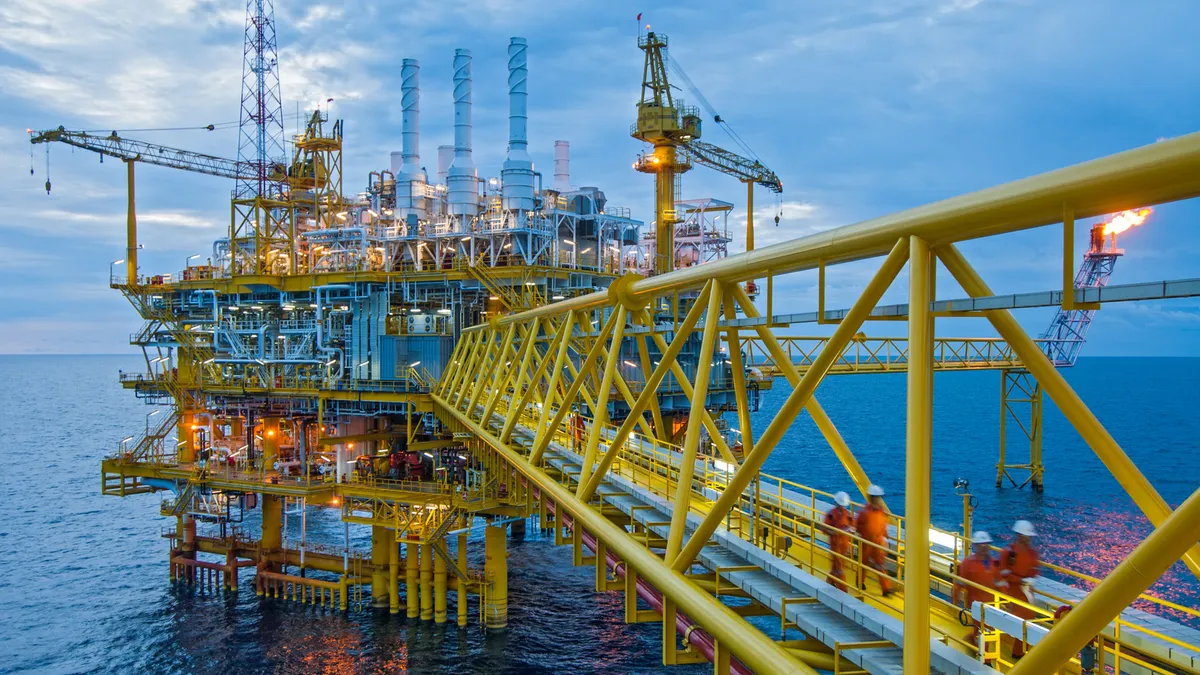Dive Brief:
- A.P. Moller - Maersk's oil and gas drilling business was listed separately on the Copenhagen stock exchange Thursday, according to multiple media reports. The new company is called The Drilling Company of 1972.
- This move is part of a 2016 plan to focus on logistics and supply chain services and move away from oil and gas in search of healthier and more stable profit margins. The company sold its oil production and exploration business to Total in 2017.
- CEO Søren Skou estimated on his February earnings call that this demerger, combined with the earlier sale of the exploration unit, add up to $12 billion, with $9 billion in cash coming in. Plans for the cash will be revealed in August, Skou said on the February call.
Dive Insight:
For nearly three years, Maersk has been buying and selling parts in order to transition away from its diversified portfolio of industries and toward becoming a more complete supply chain service provider.
Along with offloading much of its oil and gas businesses, the Danish conglomerate merged logistics firm Damco with its own Maersk Line earlier this year. And last month, it acquired New Jersey-based customs broker Vandegrift, roughly tripling the staff, transactions and revenue of Maersk's existing brokerage business in North America.
Selling one unit and spinning off another has relieved the firm of most of its oil exposure, but it will wait on spinning off its supply service unit until fuel prices are more favorable, reported FreightWaves. Claus Hemmingsen, who headed up the various oil and gas businesses for the firm recently exited after 38 years at Maersk.
The long-term plan is to offer more supply chain services, like brokerage and logistics, to take hold of a larger portion of clients' supply chains and therefore achieve better margins. But the "long" in long-term may be longer than executives realized in 2016 when the plan got into motion.
Maersk executives have made it clear that 2019 will not be an easy year for the company or the ocean shipping industry at large. The U.S.-China trade war, Brexit and economic weakness in China — all add complications to Maersk's core business. Fuel prices were the most significant drag on profitability in 2018 and are not likely to stabilize this year. With IMO 2020 preparations keeping the ocean freight markets spinning for months if not years, any success Maersk has in grabbing market share in transportation and logistics may be seen, but not felt, for the foreseeable future.














